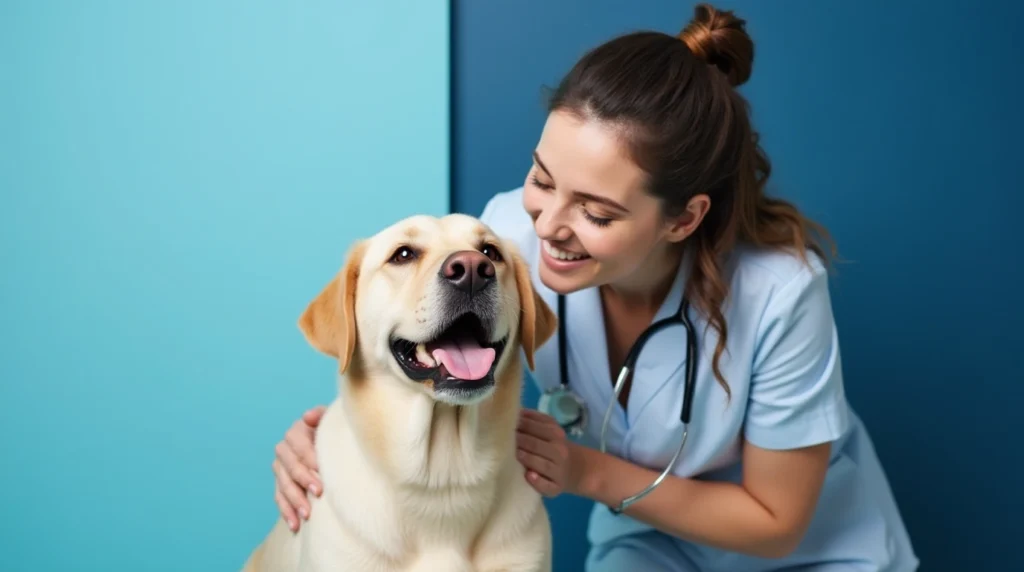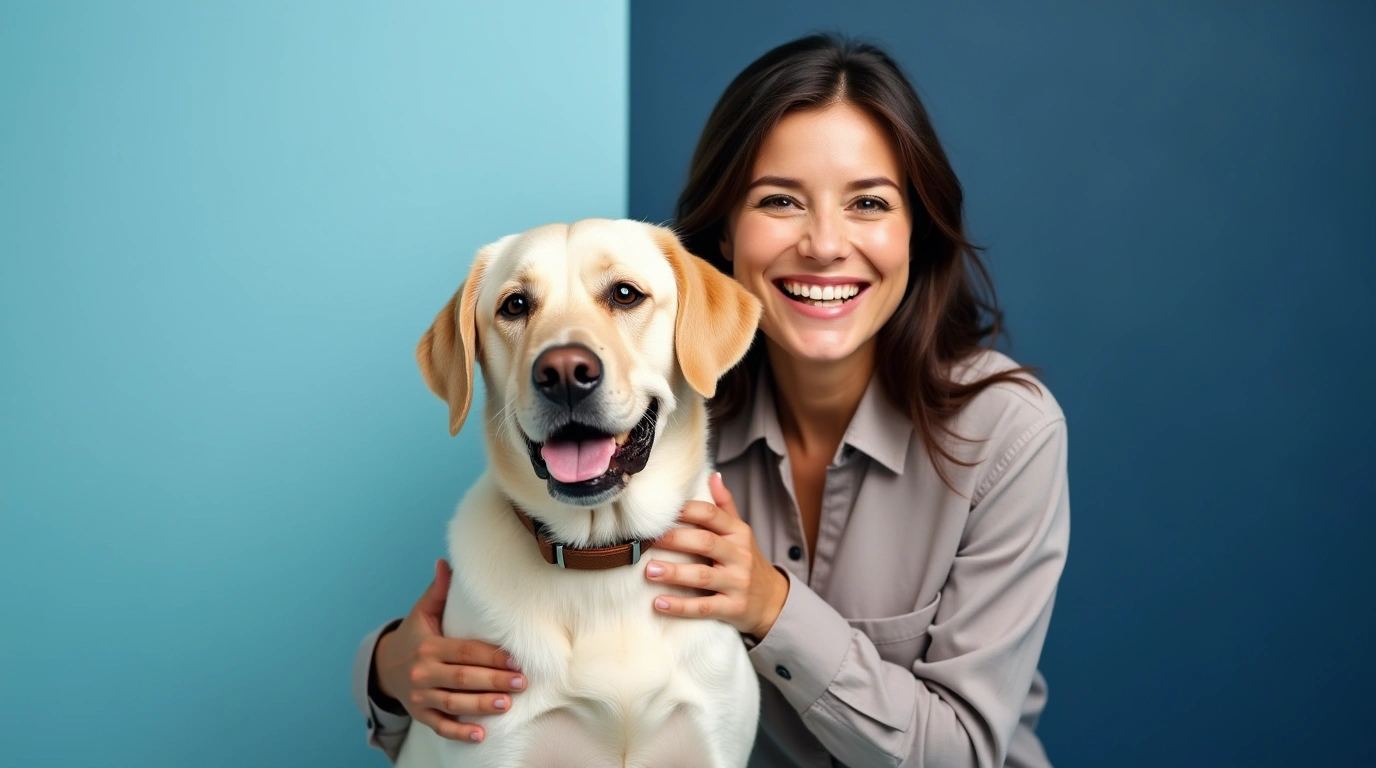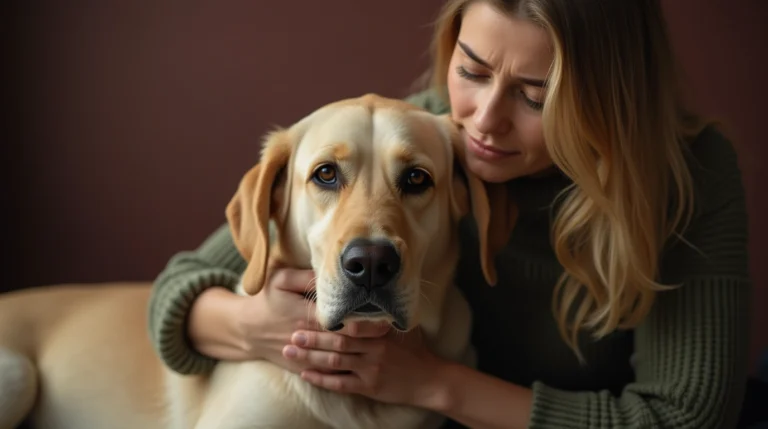Find free pet shots near me with our guide to 5 top resources offering no-cost vaccinations for dogs and cats. Keep your pets protected without straining your budget!
Table of Contents
Keeping your beloved pets healthy through preventative care is one of the most important responsibilities of pet ownership. However, veterinary costs can quickly add up, creating financial strain for many families. Vaccination expenses alone can range from $75 to $250 per year, depending on your pet’s needs. The good news is that there are numerous resources offering free pet shots near me options that can help pet owners maintain their animals’ health without breaking the bank. These free vaccination clinics provide essential protection against common and potentially fatal diseases, ensuring your furry companions live long, happy lives. In this comprehensive guide, we’ll explore the five best places to find free pet vaccinations in your community, along with everything you need to know about accessing these valuable services. Whether you’re a long-time pet parent facing financial challenges or a new pet owner looking to save on initial healthcare costs, this article will connect you with resources that can help keep your pets protected at minimal expense.
Why Pet Vaccinations Are Essential
The Critical Role of Preventative Care
Vaccinations represent the cornerstone of preventative veterinary medicine, protecting pets from several dangerous and potentially fatal diseases. For dogs, core vaccines typically protect against rabies, distemper, parvovirus, and hepatitis. Cats generally receive vaccinations for rabies, feline viral rhinotracheitis, calicivirus, and panleukopenia. Without these essential protections, pets remain vulnerable to common illnesses that can result in costly emergency veterinary care or even loss of life.
According to the American Animal Hospital Association (AAHA), properly timed vaccinations have dramatically reduced the prevalence of severe infectious diseases among companion animals. For instance, canine parvovirus cases have decreased by over 80% since vaccination became widespread in the 1980s.
The Cost Barrier to Pet Healthcare
Despite the clear importance of vaccinations, cost remains a significant barrier for many pet owners:
- Basic annual vaccines can cost $75-$100 for dogs and $50-$90 for cats at standard veterinary practices
- Additional recommended vaccines may add $100-$150 to annual veterinary expenses
- Initial puppy/kitten vaccine series typically costs $200-$300 over several months
- These costs exclude examination fees, which often range from $50-$100 per visit
For households with multiple pets or those experiencing financial constraints, these expenses can become prohibitive. This financial barrier may lead some pet owners to delay or forego crucial vaccinations, unwittingly placing their pets at risk.
As veterinarian Dr. Sarah Bowman explains, “Vaccination programs shouldn’t be considered optional or luxury care. They’re fundamental to animal health and public safety. That’s why finding affordable or free pet shots near me options is so important for many responsible pet owners who may be struggling financially.”
1. Local Animal Shelters and Humane Societies
How Shelter Vaccination Programs Work
Animal shelters and humane societies across the country have increasingly recognized the need to support community pet health beyond adoption services. Many now offer regular low-cost or free vaccination clinics open to the public. These clinics typically operate on specific days of the month and may require appointments or accept walk-ins depending on capacity.
The Humane Society of the United States reports that approximately 58% of affiliated shelters now offer some form of community vaccination program, with many specifically targeting underserved neighborhoods and low-income areas.
Finding Free Vaccination Events at Shelters
Most shelter-based vaccination clinics follow predictable patterns:
| Service Aspect | Common Approach |
|---|---|
| Scheduling | Monthly or quarterly clinics on weekends |
| Registration | May require pre-registration or offer walk-in service |
| Documentation | Proof of residency often required; income verification sometimes needed |
| Services | Core vaccines plus optional additional services (microchipping, deworming) |
| Follow-up | Vaccination records provided; reminders for boosters sometimes offered |
To locate free pet shots near me through shelters:
- Visit your local shelter’s website for community event calendars
- Follow shelter social media accounts, where clinics are frequently promoted
- Call the shelter directly to inquire about upcoming vaccination events
- Check community bulletin boards at pet stores, libraries, and community centers

Success Story: The Impact of Shelter Vaccination Programs
Jessica Morgan, a single mother of three from Columbus, Ohio, shares her experience: “When I adopted our mixed-breed puppy, Scout, from the county shelter, I was worried about affording his initial vaccine series. The shelter staff told me about their monthly free vaccination clinic. I’ve been able to keep Scout fully protected without having to choose between his healthcare and other family necessities. They’ve never made me feel embarrassed about needing financial help—just happy that I’m being a responsible pet owner.”
2. Non-Profit Pet Welfare Organizations
Dedicated Vaccination Initiatives
Several national and regional non-profit organizations focus specifically on pet healthcare access. These organizations often operate mobile vaccination clinics that travel to different neighborhoods on a rotating schedule. Unlike some shelter programs that may have residency requirements, these non-profits frequently serve broader geographical areas.
Prominent examples include:
- Pets for Life (Humane Society program): Operates in 39 underserved communities nationwide
- PAWS (Pets Are Wonderful Support): Provides free pet healthcare services in several major metropolitan areas
- Pet Help Partners: Offers vaccination assistance programs in multiple states
- Regional pet welfare organizations: Local groups often run community vaccination events
Finding Non-Profit Vaccination Services
To locate free pet shots near me through non-profits:
- Search “[your city/county] + free pet vaccinations” online
- Use resource databases like PetSmart Charities’ clinic finder
- Contact local veterinary medical associations for referrals to non-profit programs
- Check with pet supply stores, which often host or know about these events
- Join community pet owner groups on social media platforms
The Mobile Clinic Advantage
Mobile vaccination clinics run by non-profits offer several unique benefits:
- Accessibility: They often visit areas with limited veterinary services
- Convenience: Weekend and evening hours accommodate working pet owners
- Efficiency: Streamlined services often mean shorter wait times
- Approachability: Less intimidating environment for pets anxious about veterinary visits
- Community focus: Staff trained to address the needs of underserved communities
Carlos Jimenez, Director of Community Outreach at Urban Animal Advocates, explains: “Our mobile vaccination clinic serves over 15,000 pets annually across five counties. We specifically target ‘veterinary deserts’ where traditional care is geographically or financially inaccessible. When people search for free pet shots near me, we want to make sure they can find us—no matter which neighborhood they call home.”
3. Veterinary Schools and Teaching Hospitals
Academic Institutions Serving Community Needs
Veterinary teaching hospitals and schools frequently offer reduced-cost or free vaccination clinics as part of their educational mission. These events serve multiple purposes:
- Providing practical experience for veterinary students
- Fulfilling community service commitments
- Promoting preventative care in the broader community
- Identifying pets that may need additional medical attention
According to the Association of American Veterinary Medical Colleges, approximately 85% of accredited veterinary schools in the United States operate some form of community vaccination program.
Finding Veterinary School Vaccination Events
These educational institutions typically structure their vaccination clinics in one of two ways:
- Regularly scheduled community clinics: Held on campus or at affiliated facilities on a predictable schedule
- Community outreach events: Organized in partnership with local organizations, often in underserved areas
To locate free pet shots near me through veterinary schools:
- Visit the website of veterinary schools within driving distance
- Check their community service or outreach pages for event listings
- Call the school’s main clinic number and ask about community vaccination events
- Search local event listings for veterinary student outreach activities
Expert Care at Academic Institutions
While student involvement is central to these programs, all care is supervised by licensed veterinary faculty. In fact, these clinics often provide care that exceeds minimum standards.
Dr. Michael Rivera, Associate Dean of Community Outreach at Midwest Veterinary College, notes: “Our vaccination clinics serve as teaching opportunities, but they’re also extensively supervised by experienced faculty. Pets receive thorough examinations before vaccination, something that might be abbreviated at some quick-service clinics. We can also identify other health concerns that owners might not have noticed.”
Lisa Carpenter, whose three cats received vaccinations at a veterinary school clinic, shares: “I was impressed by how thorough they were. Each cat got a complete check-up before receiving their shots. One of my cats was diagnosed with early dental disease that I hadn’t noticed, and they provided guidance on addressing it affordably. All this at no cost beyond optional donations.”
4. Municipal and County Public Health Departments
Government-Sponsored Vaccination Programs
Many local governments recognize that pet health is a public health concern, particularly regarding diseases like rabies that can be transmitted to humans. As a result, municipal and county health departments increasingly offer free pet shots near me programs as part of their public health initiatives.
These programs are typically funded through:
- Animal license fees
- Local tax allocations
- State public health grants
- Federal disease prevention funding
The National Association of County and City Health Officials reports that approximately 43% of local health departments now offer some form of pet vaccination assistance, with rabies prevention being the primary focus.
Rabies Vaccination Clinics
The most common government-sponsored vaccination event is the rabies clinic. These events focus specifically on rabies prevention due to the public health implications of this zoonotic disease. Key features include:
- Extremely low cost ($5-10) or completely free rabies vaccinations
- Minimal paperwork requirements
- High-volume, efficient service
- Sometimes combined with pet licensing opportunities
- May offer additional core vaccines for nominal fees
Finding Government Vaccination Programs
To locate free pet shots near me through government agencies:
- Visit your city or county government website
- Check the animal control or public health department pages
- Sign up for county/city alerts or newsletters that announce these events
- Contact your local animal control office directly
- Look for announcements in local newspapers and government publications
Combining Public Services
Government vaccination clinics often partner with other public services to create more comprehensive community events. Robert Chen, Director of Animal Services for Lakeside County, explains: “Our quarterly vaccination clinics have evolved into pet wellness events where residents can not only get free rabies shots for their animals but also microchipping, licensing, basic wellness checks, and even nutritional counseling. We partner with the parks department to host these events in accessible public spaces, making it convenient for residents throughout the county.”
5. Pet Store and Corporate-Sponsored Clinics
Retail Partnerships for Pet Health
Major pet supply retailers have increasingly partnered with veterinary service providers to offer in-store vaccination clinics. While these clinics typically charge reduced fees rather than being completely free, they frequently offer promotional free vaccination events throughout the year. Companies like Petco, PetSmart, and Tractor Supply Company host regular vaccination clinics in thousands of locations nationwide.
How Retail Vaccination Clinics Work
These clinics generally operate on the following model:
- Scheduled on regular days (often weekends) at retail locations
- Operated by contracted veterinary service providers
- Offer a la carte services with transparent pricing
- Provide core vaccinations at 40-60% below private practice costs
- Occasionally offer free vaccination promotions for specific vaccines or first-time clients
To find retail-based free pet shots near me opportunities:
- Sign up for email newsletters from major pet retailers
- Follow pet store social media accounts for promotional announcements
- Check in-store bulletin boards for upcoming clinic dates
- Call local stores directly to ask about free vaccination promotions
- Review weekly advertisements for special offers
Accessibility and Convenience Factors
Retail vaccination clinics offer several distinct advantages:
- Geographic coverage: Located in shopping centers and retail districts across the country
- Extended hours: Often operate evenings and weekends to accommodate working pet owners
- No appointment needed: Most operate on a walk-in basis
- Familiar environment: Less stressful for pets already comfortable visiting these stores
- Additional resources: Immediate access to pet supplies that might be recommended
Michelle Taylor, who regularly uses a pet store vaccination clinic for her two dogs, explains: “I initially found them when searching for free pet shots near me during a promotional weekend. While they’re not always free, the prices are much better than my regular vet, and I can take care of shopping for supplies at the same time. The veterinarians have always been professional, and my dogs actually get excited when we go because they associate the store with treats and toys.”
How to Prepare for Free Vaccination Events
Essential Documentation
To ensure a smooth experience when utilizing free pet shots near me services, prepare the following documentation:
- Pet’s previous vaccination records (especially important for determining appropriate boosters)
- Proof of residency (often required for county or municipal programs)
- Income verification (may be required for programs targeting low-income households)
- Pet’s basic medical history, particularly any previous vaccine reactions
- Valid ID (required by most programs)
Managing Wait Times and Expectations
Free vaccination events often draw large crowds. To navigate these events efficiently:
- Arrive early, as many clinics operate on a first-come, first-served basis
- Bring water and comfort items for your pet during the wait
- Consider weather conditions if the event involves outdoor queuing
- Bring appropriate restraints (secure carriers for cats, sturdy leashes for dogs)
- Be prepared for abbreviated veterinary interactions focused primarily on vaccination
- Understand that additional services may incur fees
Safety Considerations
Veterinarian Dr. Alicia Montgomery provides this guidance: “When attending high-volume vaccination events, keep your pet properly restrained at all times. These environments can be stressful for animals, with many unfamiliar pets in close proximity. Cats should always be in secure carriers, and dogs should be on short leashes. If your pet is aggressive toward other animals or extremely anxious in new situations, these events may not be appropriate, and you should explore other affordable vaccination options.”
FAQ Section
How often does my pet need vaccinations?
Vaccination schedules vary by species, age, lifestyle, and regional disease risks. Generally:
- Puppies and kittens: Series of initial vaccinations every 3-4 weeks until 16 weeks of age
- Adult dogs: Core vaccines every 1-3 years (rabies typically required by law every 1-3 years)
- Adult cats: Core vaccines every 1-3 years (rabies typically required by law every 1-3 years)
Always consult with a veterinarian to determine the appropriate schedule for your specific pet.
Are free vaccines of the same quality as those from private veterinarians?
Yes, the vaccines themselves are identical to those used in private practice. All veterinary vaccines must meet the same FDA standards regardless of where they’re administered. The primary difference lies in the comprehensive examination and additional services that may accompany vaccination at a private practice.
What if my pet needs other medical care beyond vaccinations?
While free pet shots near me programs focus primarily on vaccinations, many will identify other health concerns during brief examinations. Ask program staff for referrals to low-cost full-service veterinary options in your area. Many of the organizations offering free vaccinations also maintain networks of affordable care providers for more complex medical needs.
Will I receive proof of vaccination from these free clinics?
Yes, all legitimate vaccination programs provide documentation of administered vaccines. This paperwork is important for:
- Proof of rabies vaccination for licensing requirements
- Records for apartment or rental housing that requires pet vaccination
- Documentation for boarding, grooming, or daycare services
- Your own records to maintain vaccination schedules
Can I get free vaccines for multiple pets?
Most programs allow vaccination of multiple pets per household, though some may limit the number. Always check specific program guidelines before bringing multiple animals. Some events may have different procedures for efficiently handling multiple pets from the same owner.
What if my pet has had a previous vaccine reaction?
If your pet has experienced a vaccine reaction previously, inform the veterinary staff before vaccination. Depending on the severity of the prior reaction, they may:
- Recommend pre-vaccination medications
- Suggest a modified vaccine protocol
- Advise monitoring your pet for a longer period after vaccination
- In some cases, provide a medical exemption letter if vaccination is contraindicated
Conclusion
Access to affordable veterinary care, especially preventative services like vaccinations, remains a critical concern for millions of pet owners across the country. The five resources outlined above—animal shelters, non-profit organizations, veterinary schools, government programs, and retail partnerships—provide valuable options for pet owners seeking free pet shots near me. These programs not only protect individual pets from preventable diseases but also contribute to community health by reducing the prevalence of infectious diseases among local pet populations.
By taking advantage of these resources, pet owners can ensure their companions receive essential preventative care regardless of financial circumstances. Remember that vaccination represents just one component of responsible pet healthcare, but it’s an important starting point that can prevent costly and heartbreaking illnesses.
If you’ve utilized any of these free vaccination services, consider sharing your experience with other pet owners in your community. Many of these programs rely on word-of-mouth to reach pet owners who might benefit from their services. Additionally, if you’re in a position to do so, consider donating to organizations providing these valuable services to ensure they remain available to those in need.
Ready to take action? Start by researching which of these free pet shots near me options are available in your community and make a plan to keep your pet’s vaccinations current. Your furry family member deserves the protection that proper immunization provides, and with these resources, that protection can be both accessible and affordable.


